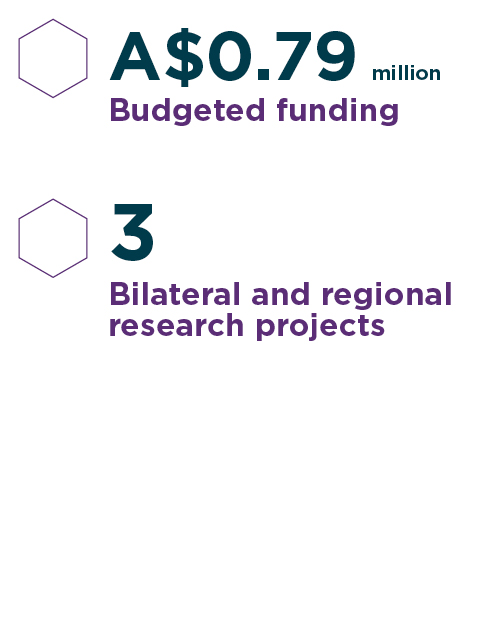Myanmar
-
File
A year after the coup that overthrew Myanmar’s elected civilian government, the World Bank estimated that Myanmar’s economy shrank 18% in 2021 and forecasted that continuing political instability and the COVID-19 pandemic would slow recovery in 2022.
The Myanmar Economic Monitor reports that the share of Myanmar’s population living in poverty has doubled compared to pre-COVID-19 levels. The report also states that ongoing economic pressures are substantially affecting vulnerability and food security, particularly for the poor, whose savings have been drained because of recent shocks. This is consistent with findings reported under the Myanmar Agriculture Policy Support Activity supported by the International Food Policy Research Institute (IFPRI). In September 2021, IFPRI reported 48% of their respondents cited food supply problems (compared to 32% in May 2021) and 41% cited loss of jobs or income (compared to 31% in May 2021).
Prior to the political turmoil and the COVID-19 pandemic, more than one-third of Myanmar’s population was already in poverty, and 6% were in extreme poverty. Almost 70% of Myanmar’s 54 million people live in rural areas and rely on crop production and fisheries or livestock for their livelihoods and incomes. The fishery and livestock sectors are considered the most important, after agriculture, to meet the protein needs of the population, enhance food security, and provide employment for rural communities. The agriculture sector used to contribute about 30% of Myanmar’s GDP. The political instability and a devastating third wave of the COVID-19 pandemic caused the price of critical inputs such as fertiliser to soar while crop prices have fallen.
Poverty and food insecurity are soaring in Myanmar’s Central Dry Zone and Ayeyarwady Delta regions, the country’s agricultural heartland. The rising food insecurity and poverty in these regions will have far-reaching repercussions in Myanmar, which relies heavily on the agricultural sector.
Country priorities
In 2020, research priorities for the ACIAR program in Myanmar aligned with 2 of the 3 focuses of Myanmar’s Agricultural Development Strategy and Investment Plan (2018–2023): productivity, and market linkages and competitiveness. Specifically, the ACIAR program in Myanmar is focused on:
- increasing net production of food and cash incomes of rural households in the Central Dry Zone and Ayeyarwady Delta, through improvements in, and adoption of, production and post-harvest technologies in agriculture, including livestock and fisheries
- building capacity in agricultural, livestock and fisheries research, development and evaluation through program activities and postgraduate and short-term training
- providing technical assistance and advice on policy strengthening to relevant Government of Myanmar departments
- linking Myanmar regionally through multi-country research collaborations.
Following the rapid global spread of the COVID-19 from early 2020, Australia’s program of development cooperation pivoted quickly to respond to the challenges being faced by the Indo-Pacific region, with a focus on health security, stability and (of particular importance to ACIAR) economic recovery. Specifically, as part of Australia’s Myanmar COVID-19 Response Plan, ACIAR committed to continuing to support improvements in food production and rural incomes through improvements in agriculture, livestock and fisheries.
The political instability sparked by the military coup of February 2021 has resulted in Australia’s development program with Myanmar being redirected to support the immediate humanitarian needs of the most vulnerable and poor, with non-government partners coordinating implementation.
2022–23 research program
- 3 ACIAR-supported projects in Myanmar
- 3 projects are part of regional projects
ACIAR is not supporting any new research collaborations in 2022–23. However, ACIAR continues to work with each of the current projects, in consultation with international partners, to identify
how collaboration might continue consistent with Australian government guidelines.
Agribusiness
Cassava witches’ broom disease and Sri Lanka cassava mosaic virus are spreading rapidly in South-East Asia. A project led by Dr Jonathan Newby of the International Center for Tropical Agriculture is developing technically viable and economically and socially sustainable ways to improve the resilience of cassava production systems and value chains in Cambodia, Laos, Myanmar and Vietnam. The project will conclude in 2023 with researchers continuing on-farm testing of new agronomic practices and training of farmers and extension officers. The project team will also finalise their investigation of alternative models for public-private funding for core activities.1
Smallholder farmers in South-East Asia often cannot access credit to invest in new crops or technologies, deal with risks and shocks, and safely carry wealth from harvest to planting. To help smallholders reach their production potential, a project led by Dr Alan de Brauw of the International Food Policy Research Institute aims to increase knowledge about how to design and implement innovative and inclusive agricultural value chain financing models in South-East Asia. During 2022–23, the project will analyse data to determine the impact of the project in each country and produce initial scientific reports and policy papers.2
Crops
Mungbean is an ideal rotation crop for smallholder farmers throughout the Indian Ocean Rim region. The International Mungbean Improvement Network, established through a project led by Dr Ramakrishnan Nair of the World Vegetable Center, helped realise the potential of mungbean to improve cropping system productivity and livelihoods by improving researchers’ access to genetic material, and coordinating and providing technical support to variety development in Bangladesh, India, Myanmar and Australia. Phase 2 of the project extends the network to Kenya and Indonesia, expanding the source of germplasm to develop new mungbean varieties, as well as strengthening the capacity of more national mungbean breeding programs.3
Regional Manager, East & South-East Asia
Research Program Managers
- Agribusiness: Mr Howard Hall
- Crops: Dr Eric Huttner
Current and proposed projects
- Establishing sustainable solutions to cassava diseases in mainland South-East Asia [Cambodia, Laos, Myanmar, Vietnam] (AGB/2018/172)
- Inclusive agriculture value chain financing [Indonesia, Myanmar, Vietnam] (AGB/2016/163)
- International Mungbean Improvement Network 2 [Bangladesh, India, Indonesia, Kenya, Myanmar] (CROP/2019/144)
